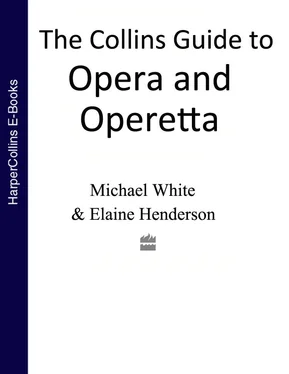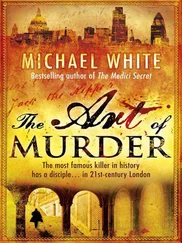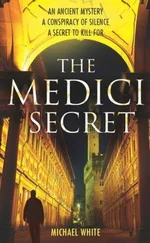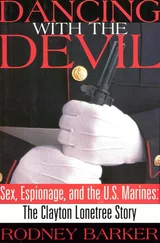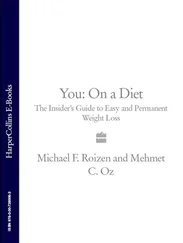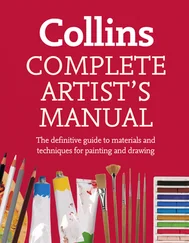THE 20TH CENTURY
Summaries of 20th-century music are invariably messier than those of earlier periods, because composers fit less easily into territorial groups or ideological movements. They tend to make their claims as individuals and resist categorisation. But the century was ushered in by one conspicuously flourishing movement in Italy known as verismo, a school of low-life realism whose first champions, Pietro Mascagni (1863–1945) and Ruggero Leoncavallo (1857–1919), found instant fame with their respective mini-masterpieces Cavalleria Rusticana and I Pagliacci, but were soon eclipsed in stature by a fellow Italian.
Giacomo Puccini (1858–1924) emerged as the next great Italian composer after Verdi. In the history of music he doesn’t stand as a notable innovator, and his appeal is far from intellectual, but the strength and passion of his melodies, the quality of his orchestral writing, and his sheer theatricality (in both the best and worst senses of the word) have guaranteed his domination of the modern opera repertoire. And if Puccini doesn’t always ‘feel’ like a 20th-century composer, remember that the majority of his mature scores, from Madama Butterfly onwards, came after 1900. However, the other dominant figure of early 20th-century opera was a German.
Not to be confused with the Viennese king of operetta (no relation), Richard Strauss (1864–1949) was the successor to Wagner in much the same way that Puccini was to Verdi, adopting the master’s language, adjusting its parameters and, in the process, lightening its intensity. A young radical who, in archetypal fashion, grew into a middle-aged conservative, Strauss’ early works set out to shock the bourgeoisie, his later ones to charm them. But the Wagnerian inheritance was constant in the prominence and weight he alotted to the orchestra, and in the declamatory, through-flowing style of his writing for the voice, which commonly requires the power and stamina of Wagner’s helden singers. Through Strauss, a style of writing was fixed whose consquences can be heard today in the sometimes tough, politically driven but also sometimes romantic operas of Hans Werner Henze (born 1926) and the massively neo-Wagnerian project of Karlheinz Stockhausen (born 1928) to write an apocalyptic cycle of seven music dramas – one for each day of the week.
The excesses of Wagner and Strauss, though, led to an inevitable reaction away from opulent, well-upholstered writing on a grand scale and towards smaller, leaner alternatives. A changing world made the economics of large-scale opera harder to sustain, and while some German figures like the young Erich Korngold (1897–1957) clung to large forces and traditional trappings, more forward-looking ones like Kurt Weill (1900–50) were scaling down and rethinking the way in which opera addresses its audience. Weill’s collaborations with the playwright Bertolt Brecht pioneered a new kind of music theatre, designed to be popular (with cabaret-style numbers), stripped of the top Cs and tiaras glamour of the opera house. Paul Hindemith (1895–1963) was also concerned with usefulness and, specifically, the relationship between the artist and society, although he gave operatic expression to it in a decidedly less radical manner than Weill and Brecht.
Meanwhile, the so-called Second Viennese School composers Arnold Schoenberg (1874–1951) and Alban Berg (1885–1935) had taken the Wagnerian message to its logical conclusions and beyond, with music that initially extended Wagner’s exotically free harmonies to a point where key signatures became almost irrelevant, and subsequently did away with any allegiance to a key centre altogether. The resulting serial or twelve-tone music proved more viable for instrumentalists than for singers, and it hasn’t found much of a following on the opera stage, even though Berg left two masterful scores of lasting importance in the modern history of the genre.
Before we leave the post-Wagnerian empire, mention has to be made of Claude Debussy (1862–1918), whose ethereally vague Pelléas et Mélisande is like Wagner in a whisper – perfumed, rich in symbolism, but without the bombast. Duke Bluebeard’s Castle, the one opera of Béla Bartók (1881–1945), is another heavily symbolic score in serious debt to the master of Bayreuth.
But the Wagnerian ascendency was finally (and ironically) ended by the intervention of one of the master’s most devoted admirers, Adolf Hitler, who single-handedly lost Germany its prime position in the mid-20th-century operatic league. The majority of the significant Austro-German composers went into exile as the Nazis came to power – usually with no choice in the matter – and their general direction was America, where Hindemith, Korngold, Weill and Schoenberg (among others) settled, assimilating with varying degrees of enthusiasm into the culture of their adoptive land and making their own contributions to the American musical melting-pot.
It would be wrong to describe the America of the 1930s as an operatic wasteland. It had been importing European talent (not least, Mozart’s librettist Da Ponte) for more than a century and boasted flourishing lyric companies. But home-grown opera was a novelty, and native composers were struggling to find a native means of self-expression – something that wasn’t merely shipped in from the old world. Marc Blitzstein (1905–64) and Virgil Thomson (1896–1989) were early experimenters, but the breakthrough came with George Gershwin (1898–1937), whose Porgy and Bess realised the hopes and strivings of a whole generation of American composers in the way it so successfully transcended the boundaries between ‘high’ and ‘low’ art: cultivated and vernacular. Gian Carlo Menotti (born 1911) has never been the showbiz figure that Gershwin was, and his Italian background tells in the Puccini-esque nature of his feel for melody and drama, but he was pushing at those high/low boundaries during the 1940s, with a succession of operas designed to play commercially in non-traditional Broadway-type venues. And with passing input from the racy Leonard Bernstein (1918–90) and the conservative but passionate Samuel Barber (1910–81), American opera has become a brilliantly hybrid industry, overflowing into transcendental events, such as those of Philip Glass (born 1937) and the very serious musicals of Stephen Sondheim (born 1930).
Backtracking slightly, France has had a disappointing 20th century for a country whose national house was once the spotlit focus of the opera world. After Pelléas et Mélisande there hasn’t been much of stature apart from a couple of lightweight charmers by Maurice Ravel (1875–1937) and a religious drama by Francis Poulenc (1899–1963).
Russia has had an altogether more distinguished time with Sergei Prokofiev (1891–1953) and Dmitri Shostakovich (1906–75), whose combined works add a sharp, abrasive edge to the development of an operatic language that largely derives from Musorgsky and Tchaikovsky. The earliest operas of Igor Stravinsky (1882–1971) take their tone from the magic fantasies of Rimsky-Korsakov. But as Stravinsky became progressively less Russian and more cosmopolitan, so his music became less ‘enchanted’ and more austerely Neoclassical, reinventing the past and reaching back beyond Wagner to the delicate detachment of Mozartian and Baroque closed forms. Another displaced person in America, it’s significant that Stravinsky wrote his chief opera, The Rake’s Progress, to an English text provided by the poet W.H. Auden and set almost as though it were Latin, with wilful unconcern that the language should sound idiomatic.
And that brings us, finally, to Britain, which, in the second half of the 20th century, became a serious creative centre for opera after two hundred years of producing almost nothing of significance. The English musical renaissance that began with Elgar produced a few attempts at music theatre that attracted passing fame, like Ethel Smyth’s The Wreckers, Delius’ A Village Romeo and Juliet and Vaughan Williams’ epic Pilgrim’s Progress. But the spark of genius didn’t quite ignite until 1945, when Peter Grimes put Benjamin Britten (1913–76) on the map as a figure of world stature. The thirteen original operas that followed built into a body of work unmatched by anybody of his generation. Their success inspired a torrent of work from other British composers that continues unabated, starting with Michael Tippett (born 1905) and William Walton (1902–83) and progressing down the years through the Mancunian duo of Harrison Birtwistle (born 1934) and Peter Maxwell Davies (born 1934) to Judith Weir (born 1954) and Mark-Anthony Turnage (born 1960). Turnage’s blistering adaptation of the bitter social satire Greek by Steven Berkoff has proved one of the most powerful and most-performed operas of the last decade or so, and it crowns a period of extraordinary productivity. With the possible exception of Finland – yes, Finland – where Aulis Sallinen (born 1935) has conjured a thriving opera industry out of nothing, it’s probably true to say that no country in the world could currently beat Britain’s ability to generate new opera. For a political culture which does as little as possible to encourage music in general and opera in particular, this is a pleasing but bizarre state of affairs.
Читать дальше
